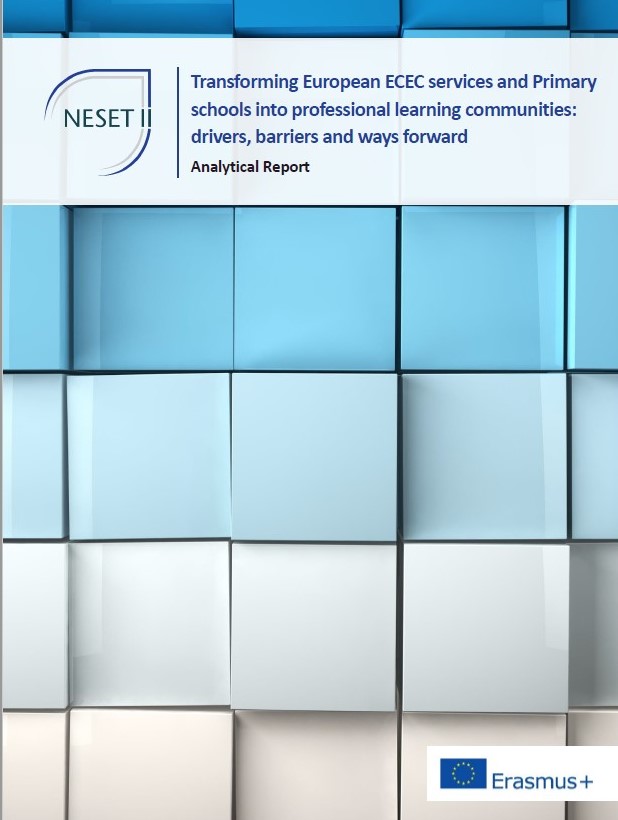
Transforming European ECEC services and Primary schools into professional learning communities: drivers, barriers and ways forward focuses on Professional Learning Communities, within competent early years systems, which help professionals better serve the complex needs of families and their children.The diverse societies in which we live make it impossible to find standardized solutions for all families. New competences like negotiation and reflection must be integrated with additional forms of continued professional development (CPD) that focus on the active and democratic participation of staff.Professional Learning Communities (PLCs) are a valuable answer to this complex issue. PLCs are ‘groups of people sharing and critically interrogating their practice in an on-going, reflective, collaborative, inclusive, learning-oriented, growth-promoting way’.Competent systems are essential for the creation and maintenance of PLCs. The latter require a multilevel network of competences, structural conditions, engagement, and awareness. This report seeks to:
- provide a framework to explain the need for PLCs today;
- offer a clear definition of the essential criteria that define a PLC, with concrete examples from several European countries; and
- provide four in-depth case studies—from Belgium (Flanders), Croatia, Italy and Slovenia—which illustrate different ways of establishing and sustaining PLCs.
The report includes specific conclusions and recommendations for policy makers in Member States. Please note that the report focuses on services and schools for 0 to 12 years old children. However, the key concepts and conclusions could also be re-adapted for secondary school.
nesetweb.eu


